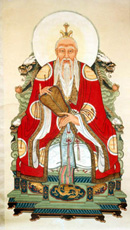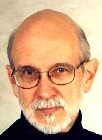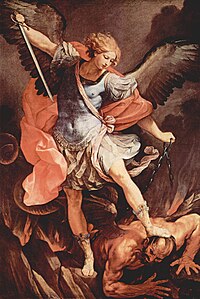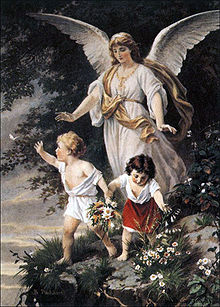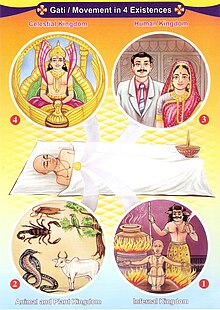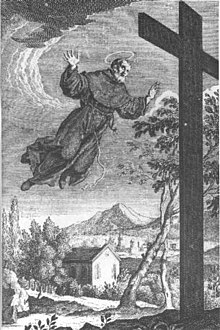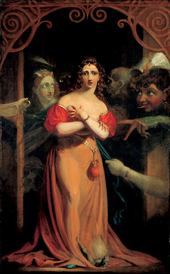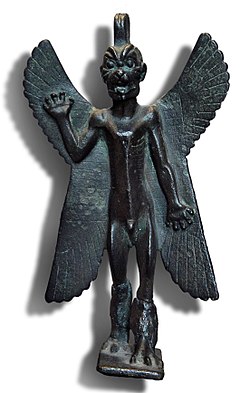The interconnectivity of nature is a key postulate in religious naturalism.
Religious naturalism (RN) combines a naturalist worldview with perceptions and values commonly associated with religions.
In this, "religious" is understood in general terms, separate from
established traditions, in designating feelings and concerns (e.g.
gratitude, wonder, humility, compassion) that are often described as
spiritual or religious.
Naturalism refers to a view that the natural world is all we have
substantiated reason to believe exists, and there is no substantiated
reason to believe that anything else, including deities, exists or may
act in ways that are independent of the natural order.
Areas of inquiry include attempts to understand the natural world and the spiritual and moral implications of naturalist views. Understanding is based in knowledge obtained through scientific inquiry and insights from the humanities and the arts.
Religious naturalists use these perspectives in responding to personal
and social challenges (e.g. finding purpose, seeking justice, coming to
terms with mortality) and in relating to the natural world.
Naturalism
Naturalism is the "idea or belief that only natural (as opposed to supernatural or spiritual) laws and forces operate in the world".
All forms of religious naturalism, being naturalistic
in their basic beliefs, assert that the natural world is the center of
our most significant experiences and understandings. Consequently, nature
is considered as the ultimate value in assessing one's being.
Religious naturalists, despite having followed differing cultural and
individual paths, affirm the human need for meaning and value in their
lives. They draw on two fundamental convictions in those quests: the
sense of Nature's richness, spectacular complexity, and fertility, and
the recognition that Nature is the only realm in which people live out
their lives. Humans are considered interconnected parts of Nature.
Science
is a fundamental, indispensable component of the paradigm of religious
naturalism. It relies on mainstream science to reinforce religious and
spiritual perspectives. Science is the primary interpretive tool for
religious naturalism, because, scientific methods are thought to provide
the most reliable understanding of Nature and the world, including
human nature.
Truth is sought for its own sake. And those who are engaged upon the quest for anything for its own sake are not interested in other things. Finding the truth is difficult, and the road to it is rough.
Therefore, the seeker after the truth is not one who studies the writings of the ancients and, following his natural disposition, puts his trust in them, but rather the one who suspects his faith in them and questions what he gathers from them, the one who submits to argument and demonstration, and not to the sayings of a human being whose nature is fraught with all kinds of imperfection and deficiency. Thus the duty of the man who investigates the writings of scientists, if learning the truth is his goal, is to make himself an enemy of all that he reads, and, applying his mind to the core and margins of its content, attack it from every side. He should also suspect himself as he performs his critical examination of it, so that he may avoid falling into either prejudice or leniency.
Religious
A religious attitude towards nature
Religious naturalists use the term "religious" to refer to an
attitude – of being appreciative of and interested in concerns that have
long been parts of religions.
These include:
- A spiritual sense (which may include a sense of mystery or wonder or feelings of reverence or awe in response to the scope and power and beauty of the natural world)
- A moral sense (with compassion, desire for justice, and attempts to do what is right – with respect to other people, other creatures, and the natural environment)
As the source of all that is and the reason why all things are as
they are, the natural world may be seen as being of ultimate importance.
As in other religious orientations, religious naturalism includes a central story
– a modern creation myth – to describe ourselves and our place in the
world. This begins with the Big Bang and the emergence of galaxies,
stars, planets, and life, and evolution that led to the presence of
human beings. As this gives insight into who we are and how we came to
be, religious naturalists look to the natural world (the source of our
intelligence and inclinations) for information and insights that may
help us to understand and respond to important questions:
- Why do we want what we want?
- Why we do the things we do?
- What we might try to point ourselves toward?
and to try to find ways to minimize problems (in ourselves and in our
world), become our better selves, and relate to others and the world we
are part of.
When discussing distinctions between "religious" naturalists and "plain old" (secular) naturalists, Loyal Rue said:
"I regard a religious or spiritual person to be one who takes ultimate concerns to heart."
He noted that, while "plain old" naturalists are concerned with
morals and may have emotional responses to the mysteries and wonders of
the world, those who describe themselves as religious naturalists take
it more "to heart" and show active interest in this area.
History
Core
themes in religious naturalism have been present, in varied cultures,
for centuries. But active discussion, with use of this name, is
relatively recent.
All things are parts of one single system, which is called Nature ... Virtue consists in a will which is in agreement with Nature.
Views consistent with religious naturalism can be seen in ancient
Daoist texts (e.g., Dao De Jing) and some Hindu views (such as God as
Nirguṇa Brahman, God without attributes). They may also be seen in
Western images that do not focus on active, personal aspects of God,
such as Thomas Aquinas' view of God as Pure Act, Augustine's God as
Being Itself, and Paul Tillich's view of God as Ground of Being. As Wesley Wildman
has described, views consistent with RN have long existed as part of
the underside of major religious traditions, often quietly and sometimes
in mystical strands or intellectual sub-traditions, by practitioners
who are not drawn to supernatural claims.
The earliest uses of the term, religious naturalism, seem to have occurred in the 1800s. In 1846, the American Whig Review described "a seeming 'religious naturalism'",
In 1869, American Unitarian Association literature adjudged:"Religious
naturalism differs from this mainly in the fact that it extends the
domain of nature farther outward into space and time. ...It never
transcends nature". Ludwig Feuerbach
wrote that religious naturalism was "the acknowledgment of the Divine
in Nature" and also "an element of the Christian religion", but by no
means that religion's definitive "characteristic" or "tendency".
Lao Tzu, traditionally the author of the Tao Te Ching
In 1864, Pope Pius IX condemned religious naturalism in the first seven articles of the Syllabus of Errors.
Mordecai Kaplan (1881–1983), one of the great rabbis of the 20th century and the founder of the Jewish reconstructionism movement,
early advocated religious naturalism. He believed that a naturalistic
approach to religion and ethics was possible in a desacralizing world.
He saw God as the sum of all natural processes.
Other verified usages of the term came in 1940 from George Perrigo Conger and from Edgar S. Brightman. Shortly thereafter, H. H. Dubs wrote an article entitled Religious Naturalism – an Evaluation
(The Journal of Religion, XXIII: 4, October, 1943), which begins
"Religious naturalism is today one of the outstanding American
philosophies of religion…" and discusses ideas developed by Henry Nelson Wieman in books that predate Dubs's article by 20 years.
In 1991 Jerome A. Stone wrote The Minimalist Vision of Transcendence explicitly "to sketch a philosophy of religious naturalism". Use of the term was expanded in the 1990s by Loyal Rue,
who was familiar with the term from Brightman's book. Rue used the term
in conversations with several people before 1994, and subsequent
conversations between Rue and Ursula Goodenough [both of whom were active in IRAS (The Institute on Religion in an Age of Science)
led to Goodenough's use in her book "The Sacred Depths of Nature" and
by Rue in "Religion is not about God" and other writings. Since 1994
numerous authors have used the phrase or expressed similar thinking.
Examples are Chet Raymo, Stuart Kauffman and Karl E. Peters.
Mike Ignatowski states that "there were many religious naturalists in
the first half of the 20th century and some even before that" but that
"religious naturalism as a movement didn't really come into its own
until about 1990 [and] took a major leap forward in 1998 when Ursula
Goodenough published The Sacred Depths of Nature, which is considered
one of the founding texts of this movement."
Biologist Ursula Goodenough states:
I profess my Faith. For me, the existence of all this complexity and awareness and intent and beauty, and my ability to apprehend it, serves as the ultimate meaning and the ultimate value. The continuation of life reaches around, grabs its own tail, and forms a sacred circle that requires no further justification, no Creator, no super-ordinate meaning of meaning, no purpose other than that the continuation continue until the sun collapses or the final meteor collides. I confess a credo of continuation. And in so doing, I confess as well a credo of human continuation
Donald Crosby's Living with Ambiguity published in 2008, has, as its first chapter, Religion of Nature as a Form of Religious Naturalism.
Loyal Rue's Nature is Enough published in 2011, discusses "Religion Naturalized, Nature Sanctified" and "The Promise of Religious Naturalism".
Religious Naturalism Today: The Rebirth of a Forgotten Alternative
is a history by Dr. Jerome A. Stone (Dec. 2008 release) that presents
this paradigm as a once-forgotten option in religious thinking that is
making a rapid revival. It seeks to explore and encourage religious ways
of responding to the world on a completely naturalistic basis without a
supreme being or ground of being. This book traces this history and
analyzes some of the issues dividing religious naturalists. It covers
the birth of religious naturalism, from George Santayana to Henry Nelson Wieman
and briefly explores religious naturalism in literature and art.
Contested issues are discussed including whether nature's power or
goodness is the focus of attention and also on the appropriateness of
using the term "God". The contributions of more than twenty living
Religious Naturalists are presented. The last chapter ends the study by
exploring what it is like on the inside to live as a religious
naturalist.
Chet Raymo writes that he had come to the same conclusion as Teilhard de Chardin: "Grace is everywhere",
and that naturalistic emergence is in everything and far more magical
than religion-based miracles. A future humankind religion should be
ecumenical, ecological, and embrace the story provided by science as the
"most reliable cosmology".
As P. Roger Gillette summarizes:
Thus was religious naturalism born. It takes the findings of modern science seriously, and thus is inherently naturalistic. But it also takes the human needs that led to the emergence of religious systems seriously, and thus is also religious. It is religious, or reconnective, in that it seeks and facilitates human reconnection with one's self, family, larger human community, local and global ecosystem, and unitary universe (…) Religious reconnection implies love. And love implies concern, concern for the well-being of the beloved. Religious naturalism thus is marked by concern for the well-being of the whole of nature. This concern provides a basis and drive for ethical behavior toward the whole holy unitary universe.
Tenets
Due to
the high importance placed on nature, some religious naturalists have a
strong sense of stewardship for the Earth. Luther College professor
Loyal Rue has written:
Religious naturalists will be known for their reverence and awe before Nature, their love for Nature and natural forms, their sympathy for all living things, their guilt for enlarging the ecological footprints, their pride in reducing them, their sense of gratitude directed towards the matrix of life, their contempt for those who abstract themselves from natural values, and their solidarity with those who link their self-esteem to sustainable living.
Varieties
The
literature related to religious naturalism includes many variations in
conceptual framing. This reflects individual takes on various issues, to
some extent various schools of thought, such as basic naturalism, religious humanism, pantheism, panentheism, and spiritual naturalism that have had time on the conceptual stage, and to some extent differing ways of characterizing Nature.
Current discussion often relates to the issue of whether belief
in a God or God-language and associated concepts have any place in a
framework that treats the physical universe as its essential frame of
reference and the methods of science as providing the preeminent means
for determining what Nature is. There are at least three varieties of
religious naturalism, and three similar but somewhat different ways to
categorize them. They are:
- A kind of naturalism that does use theological language but fundamentally treats God metaphorically.
- A commitment to naturalism using theological language, but as either (1) a faith statement or supported by philosophical arguments, or (2) both, usually leaving open the question of whether that usage as metaphor or refers to the ultimate answer that Nature can be.
- Neo-theistic (process theology, progressive religions) – Gordon Kaufman, Karl E. Peters, Ralph Wendell Burhoe, Edmund Robinson
- Non-theistic (agnostic, naturalistic concepts of god) – Robertson himself, Stanley Klein, Stuart Kauffman, Naturalistic Paganism.
- atheistic (no God concept, some modern naturalisms, Process Naturalism, C. Robert Mesle, non-militant atheism, antitheism) – Jerome A. Stone, Michael Cavanaugh, Donald A. Crosby, Ursula Goodenough, Daniel Dennett
- A hodgepodge of individual perspectives – Philip Hefner
The first category has as many sub-groups as there are distinct definitions for god. Believers in a supernatural entity (transcendent) are by definition not religious naturalists however the matter of a naturalistic concept of God (Immanence) is currently debated. Strong atheists
are not considered Religious Naturalists in this differentiation. Some
individuals call themselves religious naturalists but refuse to be
categorized. The unique theories of religious naturalists Loyal Rue, Donald A. Crosby, Jerome A. Stone, and Ursula Goodenough are discussed by Michael Hogue in his 2010 book The Promise of Religious Naturalism.
God concepts
- Those who conceive of God as the creative process within the universe – example, Henry Nelson Wieman
- Those who think of God as the totality of the universe considered religiously – Bernard Loomer.
- A third type of religious naturalism sees no need to use the concept or terminology of God, Stone himself and Ursula Goodenough
Stone emphasizes that some Religious Naturalists do not reject the
concept of God, but if they use the concept, it involves a radical
alteration of the idea such as Gordon Kaufman who defines God as
creativity.
Ignatowski divides RN into only two types – theistic and non-theistic.
There are several principles shared by all the aforementioned varieties of religious naturalism:
- All varieties of religious naturalism see humans as an interconnected, emergent part of nature.
- Accept the primacy of science with regard to what is measurable via the scientific method.
- Recognize science's limitations in accounting for judgments of value and in providing a full account of human experience. Thus religious naturalism embraces nature's creativity, beauty and mystery and honors many aspects of the artistic, cultural and religious traditions that respond to and attempt to interpret Nature in subjective ways.
- Approach matters of morality, ethics and value with a focus on how the world works, with a deep concern for fairness and the welfare of all humans regardless of their station in life.
- Seek to integrate these interpretative, spiritual and ethical responses in a manner that respects diverse religious and philosophical perspectives, while still subjecting them and itself to rigorous scrutiny.
- The focus on scientific standards of evidence imbues RN with the humility inherent in scientific inquiry and its limited, albeit ever deepening, ability to describe reality (see Epistemology).
- A strong environmental ethic for the welfare of the planet Earth and humanity.
- Belief in the sacredness of life and the evolutionary process
The concept of emergence has grown in popularity with many Religious Naturalists. It helps explain how a complex Universe and life by self-organization
have risen out of a multiplicity of relatively simple elements and
their interactions. The entire story of emergence is related in the Epic of Evolution
– the mythic scientific narrative used to tell the verifiable chronicle
of the evolutionary process that is the Universe. Most religious
naturalists consider the Epic of Evolution a true story about the
historic achievement of Nature. "The
Epic of Evolution is the 14 billion year narrative of cosmic,
planetary, life, and cultural evolution—told in sacred ways. Not only
does it bridge mainstream science and a diversity of religious
traditions; if skillfully told, it makes the science story memorable and
deeply meaningful, while enriching one's religious faith or secular
outlook."
A number of naturalistic writers have used this theme as a topic
for their books using such synonyms as: Cosmic Evolution, Everybody's
Story, Evolutionary Epic, Evolutionary Universe, Great Story, New Story,
Universal Story. 'Epic
of evolution' is a term that, within the past three years(1998), has
become the theme and title of a number of gatherings. It seems to have
been first used by Harvard biologist Edward O. Wilson in 1978. 'The
evolutionary epic,' Wilson wrote in his book On Human Nature, 'is
probably the best myth we will ever have.' Myth as falsehood was not the
usage intended by Wilson in this statement. Rather, myth as a grand
narrative that provides a people with a placement in time—a meaningful
placement that celebrates extraordinary moments of a shared heritage.
The epic of evolution is science translated into meaningful story."
Evolutionary evangelist minister Michael Dowd
uses the term to help present his position that science and religious
faith are not mutually exclusive (a premise of religious naturalism). He
preaches that the epic of cosmic, biological, and human evolution,
revealed by science, is a basis for an inspiring and meaningful view of
our place in the universe. Evolution is viewed as a spiritual process
that it is not meaningless blind chance. He is joined by a number of other theologians in this position.
Notable proponents and critics
Proponents
Support
for religious naturalism can be seen from two perspectives. One is
individuals, in recent times, who have discussed and supported religious
naturalism, per se. Another is individuals from earlier times who may
not have used or been familiar with the term, "religious naturalism",
but who had views that are compatible and whose thoughts have
contributed to development of religious naturalism.
People who have been supportive of and who discussed religious naturalism by name include:
- Chet Raymo
- Loyal Rue
- Donald A. Crosby
- Jerome A. Stone
- Michael Dowd
- Ursula Goodenough
- Terrence Deacon
- Loren Eiseley
- Philip Hefner
- Ralph Wendell Burhoe
- Mordecai Kaplan
- Henry Nelson Wieman
- George Santayana
- Gordon D. Kaufman
- Stuart Kauffman
- Stanley A. Klein
- C. Robert Mesle
- Karl E. Peters
- Varadaraja V. Raman
- Ian Barbour
- Robert S. Corrington
Critics
Religious
naturalism has been criticized from two perspectives. One is that of
traditional Western religion, which disagrees with naturalist disbelief
in a personal God. Another is that of naturalists who do not agree that a
religious sense can or should be associated with naturalist views.
Critics in the first group include supporters of traditional Jewish,
Christian, and Islamic religion. Critics in the second group include:
Prominent communities and leaders
Religious
naturalists sometimes use the social practices of traditional
religions, including communal gatherings and rituals, to foster a sense
of community, and to serve as reinforcement of its participants' efforts
to expand the scope of their understandings. Some other groups mainly
communicate online. Some known examples of religious naturalists
groupings and congregation leaders are:
- Religious Naturalist Association
- Spiritual Naturalist Society
- Unitarian Universalist Religious Naturalists
- Religious Naturalism Facebook Group
- World Pantheist Movement – largely web-based but with some local groups.
- Universal Pantheist Society founded 1975 – Pantheism is an intercepting concept with religious naturalism
- Congregation Beth Or, a Jewish congregation near Chicago led by Rabbi David Oler
- Congregation of Beth Adam in Loveland Ohio led by Rabbi Robert Barr
- Pastor Ian Lawton, minister at the Christ Community Church in Spring Lake, West Michigan and Center for Progressive Christianity
Religious Naturalism is the focus of classes and conferences at some colleges and theology schools.
Articles about religious naturalism have appeared frequently in
journals, including Zygon, American Journal of Theology and Philosophy,
and the International Journal for Philosophy and Religion.


